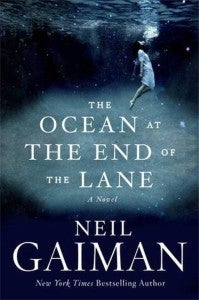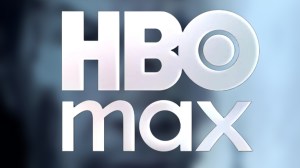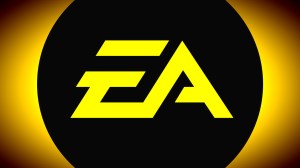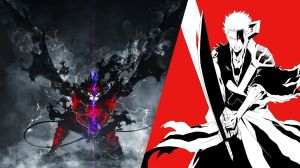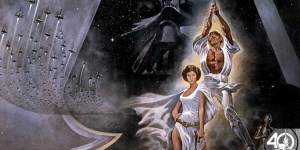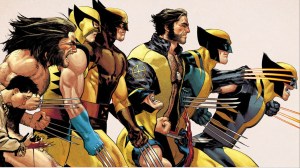Videos by ComicBook.com
Neil Gaiman saved my life. Not indirectly, though I’m certain he’s done so thousands of times for thousands of people, but through direct address, while he was writing this novel, and I was attempting to finish my masters’ thesis. Though he doesn’t really know who I am, and looking at the exchange, I realize I got several specifics wrong, but I got the general message correct, and one of my great literary heroes conceded an analytical point regarding his own work to me. It was a dark point in my life and I’d been alone and doubting my ability to analyze anything at all. I would not have survived that weekend without him taking the time from writing this book to give me that affirmation, and my work is currently in the editing stages of being published. So I must admit: I truly owe my continued life to this man and as such, am not an unbiased critic. Nonetheless: Mr. Gaiman felt that I was capable of analyzing his work in a better fashion than he did in that one case, though that does not by any means make me an expert.As to the review proper: after many years in the joyous throes of a reading addiction, I have come to understand that while all great readers are not great writers, all great writers are great readers. And Mr. Gaiman has read, has done his research, and truly deserves the title of of of the, if not “The” Greatest Mythmaker(s) of our age. For those of you who’ve read only his comics, you need only look at the blurb “About the Author” on the cover flap to realize that there are numerous allusions to his comics work in this novel. To those who’ve only read his prose, his childrens’ literature, or watched “Coraline” or “Beowulf,” or “The Doctor’s Wife,” you’ll see very quickly that he is returning to those same themes. He’s rather good with them, and he’s not straying far from his usual territory.But, as Sir Pratchett said, clichés are clichés because they are the hammers and nails of how Western civilization communicates, and what Mr. Gaiman has done here is a made a much finer analysis and depiction of those hammers and nails useed in the range of themes and tales that he has studied and depicted so well. Anyone who’s read his work since Sandman knows that he has always been fascinated with the Triple Goddess, with the Hero with a Thousand Faces, with the Every (Wo)Man Who First Reluctantly then Joyously is Thrust into A Story (be s/he hero or not) and with that which is Horrible and Eldritch, Nameless and Beyond our Ken. In The Ocean at the End of the Lane, Neil Gaiman takes on all of these grand concepts, and using the voice of seven-year-old child, says something even greater than he has before, which even after my third read of his spare, concise 178 pages, I am not certain I can even begin to explain in fewer. But I can say that he has taken all our classical Western Myths, and almost all of his own stories and brought them into our time, but expanded “our time” to ensure this story will not become a period piece for some time, and while doing all of that, he has said something more. Odds are that some English Major/Grad-Student/Professor in the near future will make their life’s work analyzing this novel. This may sell it to academics, but what about the rest of us?”Whose funeral is the narrator attending?” my mother, not an academic but another great reader—and one older, better read, and (don’t tell her this) smarter than I—asked me before I finished the book. She gave her opinion by the end of my first read and I remain unsure whether she’s right, or whether the answer even matters, but it is a fair question. I will give a few clues as to my opinion: the events take place in England and the narrator’s name, given only in a throwaway line very late in the book, is George. Then recall that I told you this is an epic myth contained in a mere 178 pages, and invite you to consider the question as you will, or not. But only after you read this book.A passer-by, watching me read the third time while taking notes, said he’d read a few of Gaiman’s books and asked me what this one was about and the only answer I could come up with in the moment was, “Evil, and how to resist it.” “Not defeat it?” “No, I don’t think so.”I began by stating that this book is not new territory for the author, and I’ve dismissed what my mother felt is the central mystery of the book, so why am I still so insistent that it is a huge-step for him, and something that maybe not everyone, but most people ought to read? Because reading this book is watching a master transcend that title and become someone who forever raises the bar of mastery in that field. Mr. Gaiman has read, he has done his research, and he has grown. He once took exception to Elmore Leonard’s rules for writing fiction, stating that several of the thousands of words in American Gods were there simply because he liked them, and that spare, crisp prose was well enough, but a good writer could occasionally indulge. I still agree with him: word play and rich worlds are fun, and done well, fun to read. But In The Ocean at the End of the Lane, Mr. Gaiman indulges in nothing. There are no real tangents, nothing place to get distracted and walk away, no door-stopper quality to ward off the faint of heart, though there’s plenty of Easter Eggs in there if you read his earlier, more indulgent work. The writing is tight as a drum, every word there for a reason, each one saying something very specific in each place and time, and yet after several reads I’m still pondering exactly how much more is left to un-pack—and believe me, there is much, much more.An example: for many years, I’ve used Delirium-Who-Was-Once-Delight as my internet avatar, and in one of her greatest moments, telling off her big brother Destiny, Delirium said, “Not knowing everything is all that makes it okay, sometimes.” Delirium’s cameo in American Gods was acknowledged though not obvious to anyone but fans of Sandman, but I can’t wait to read other critiques on this novel exploring the connection between Delight Delirium and Lettie Hempstock, as it will be very obvious to anyone who has read both Sandman and this novel—indeed, the line above returns, word for word, more than once. I will say this: the point Mr. Gaiman conceded to me regarding his own work was about the depiction of gender. And as someone who often handles the criticism of literature and media of all sorts from the gender angle, I will state that while great female authors are rarely accused of completely failing to understand their male characters, great male authors are often (aptly) criticized for not understanding their female characters. In particular, male authors tend to do very well when writing pre-adolescent and post-menopausal women, but for women of sexual maturity, the connection fails more often than not (though Pratchett, Christopher Moore, and Neal Stephenson, among others, are getting better with age).With the Ladies Hempstock, Gaiman acknowledges this frequent failure, for Ginnie (the Mother/Woman, rather than Maiden or Crone) is the most mysterious character in the novel. What he reveals , I think, is how he has learned over the years through the Maiden/Daughter Lettie; something I think he always knew but chose to forget for awhile, because that made it okay. Because Mr. Gaiman has never hidden his abiding affection for his daughters, and I don’t think that it’s a coincidence that this novel emerged as his youngest reached maturity. Because unless she dies, the Maiden must change into the Woman, however painful for her Father that change may be. Unlike Door, from Neverwhere, who suffered but overcame and never quite transformed into the Mother, at least not before the curtain closed, the Narrator/maybe-half-hero Richard rushing behind her to have more adventures, Lettie, changes and sacrifices herself in this novel. George, Ocean’s Narrator, is not the Hero at all, but there only to observe Lettie’s sacrifices in terror and without true comprehension more often than not. For while all Englishmen will tell you that St. George is the protector and patron saint of England, Arthur is its Hero: Arthur who remains resting in Avalon, its Once and Future King. And at the end of this text, the Maiden, the one who inevitably must change or die, remains resting. But we know, and the Narrator knows, or at least hopes so much that he thinks he knows, that when the time comes, that this meager world will be protected and the Hero will rise once more.In short: read this book. Then read it again. Then go back and read your mythology and your holy books and your fairy tales and stories of the Round Table, stories of every hero from every culture, and read this book again. Homer. Luo Guanzhong. Shakespeare, and those other rare writers, names too often lost to time, who have shaped not just Western literature, but this new literature that is being born of all those myths and stories being shared, bouncing off of each other and creating new forms, new stories that are still somehow familiar. Go and read them all , be a great reader, and then decide whether or not Gaiman has somehow, through Trick of Fate or Gift of the God(s) or pure unbidden talent, joined that highest pantheon by crowning his existing works with this novel. Because, doing my best to divorce myself of my pure affection for the man, I believe that he now ranks with them. I beg you all to challenge me—but please come armed with footnotes, as I have mine at hand.

